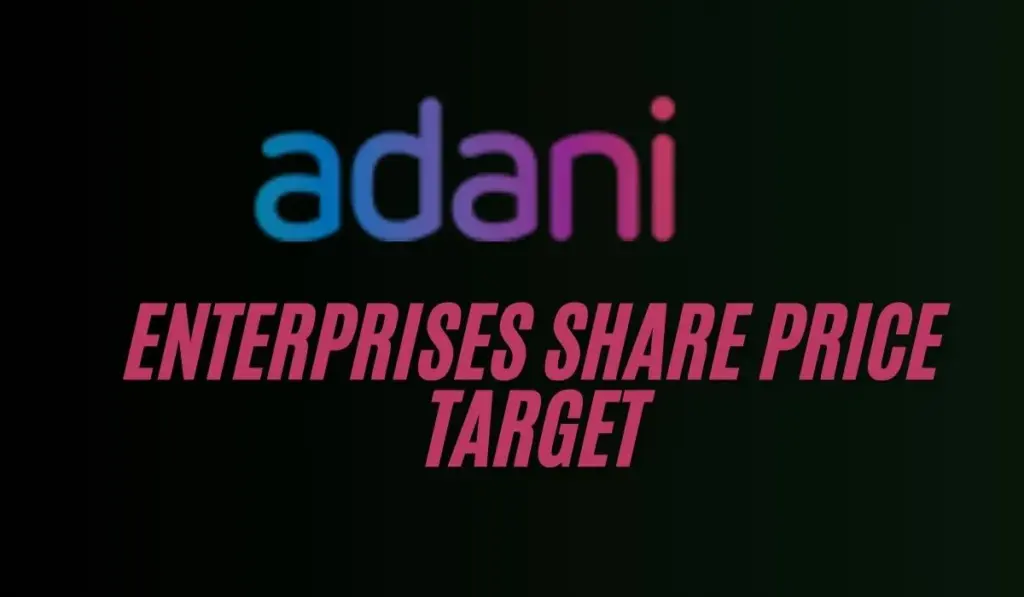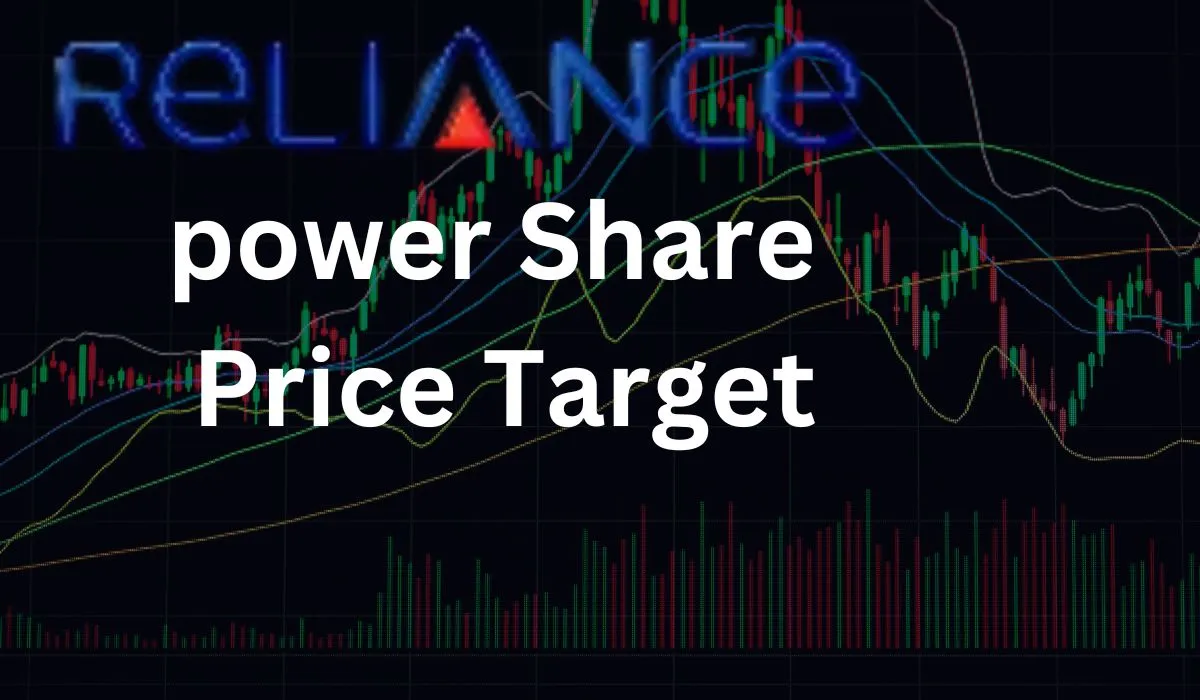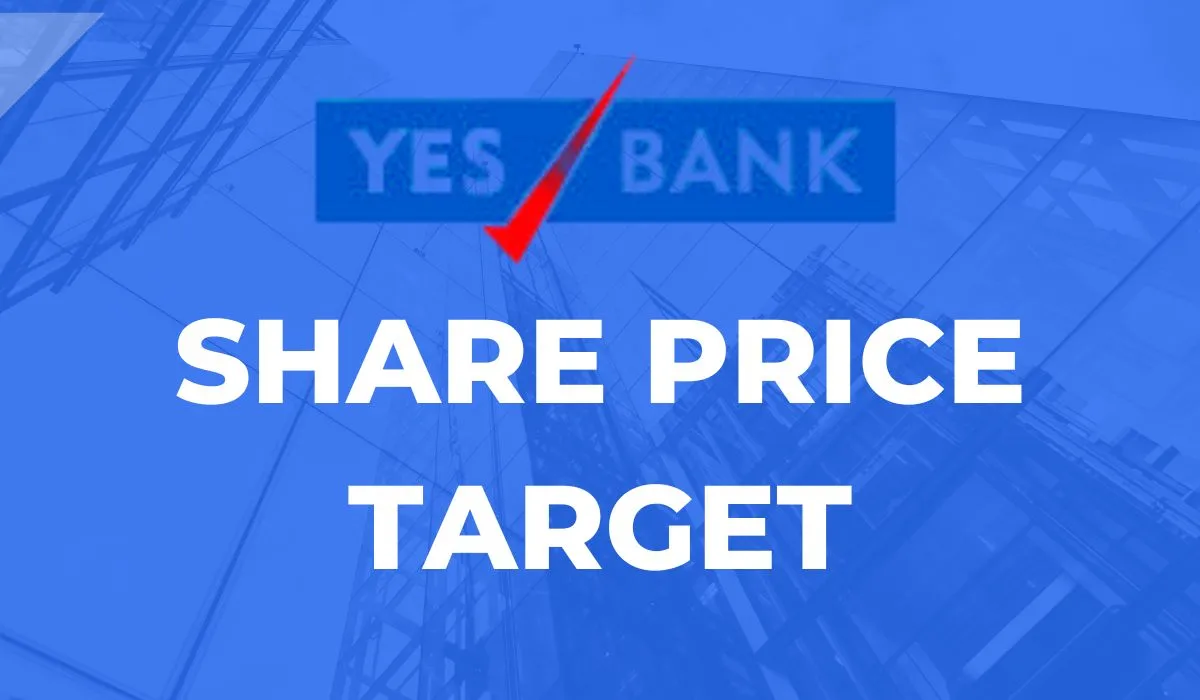If you’re wondering which shares could be the best investment option right now, Adani Enterprises might catch your attention.
Known for its impressive growth and diverse business ventures, it has become a prominent player in the stock market. In this special post, we’ll explore Adani Enterprises Share Price Targets for 2025, 2027, 2030, and beyond.
With thorough research and insights from experts, we’ll discuss its growth, performance, and future potential.
Adani Enterprises Share Price Target is must-have share in your wishlist.
As you read the whole article, you will find find the best analysis to make a proper decision to invest in it.
This article will cover the company’s financial growth, business strategies, shareholding pattern, and yearly forecasted share prices.
It provides expert analysis to help you decide if this share is worth investing in right now.

Table of Contents
About Adani Enterprises
Adani Enterprises Limited is the main company of the Adani Group, one of India’s biggest business groups.
The company works in many important areas like renewable energy, mining, natural gas, infrastructure, and airports.
It leads projects in solar and wind power, aiming to produce clean energy for a better future.
Adani Enterprises also manages ports and airports and is building new infrastructure to support India’s growth.
The company focuses on creating modern solutions while helping India move towards cleaner and greener energy.
Adani Enterprises Share Price Market Overview
Adani Enterprises Fundamentals
| Mkt Cap | ₹2,60,574 Cr |
| ROE | 13.21% |
| P/E Ratio (TTM) | 47.07 |
| EPS (TTM) | 47.96 |
| P/B Ratio | 5.65 |
| Div Yield | 0.06% |
| Industry P/E | 38.14 |
| Book Value | 399.38 |
| Debt to Equity | 1.92 |
| Face Value | 1 |
| 52 Week Low | ₹2,025.00 |
| 52 Week High | ₹3,743.90 |
| Open | ₹2,265.60 |
| Prev. Close | ₹2,257.50 |
| Volume | 77,23,187 |
| Lower Circuit | ₹2,031.75 |
| Upper Circuit | ₹2,483.25 |
Adani Enterprises Share Price Prediction 2025-2030
Adani Enterprises Share Price Target (2025-2030)
| Year | Price Target (₹) |
|---|---|
| 2025 | ₹4010 |
| 2026 | ₹5170 |
| 2027 | ₹6687 |
| 2028 | ₹7470 |
| 2029 | ₹8156 |
| 2030 | ₹9600 |
Now, let’s explore the year-by-year share price targets.
Adani Enterprises Share Price Target 2025
The year 2025 is projected to be a turning point for Adani Enterprises, with a forecasted share price target of ₹4010.
This estimate reflects the company’s solid fundamentals and ambitious projects.
For instance, its investments in large-scale solar parks in Gujarat and Rajasthan align with the global push for renewable energy, enhancing its valuation and investor confidence.
While risks like market volatility and regulatory challenges exist, the company’s growth trajectory makes this target achievable.
For investors, 2025 could be a promising year to see returns.
Adani Enterprises Share Price Target 2026
In 2026, the share price target is expected to rise to ₹5170.
This growth stems from the company’s expanding ventures in digital infrastructure, logistics, and green energy.
AdaniConneX, a joint venture focused on hyper-scale data centers, is a prime example of how the company is capitalizing on India’s growing demand for digital solutions.
As Adani Enterprises diversifies its revenue streams, it becomes an even more attractive option for long-term investors.
Also Read:
- SAIL Share Price Target From 2025 To 2030: In-Depth Analysis
- IRFC Share Price Target From 2025 To 2030
- Trident Share Price Target from 2025 To 2030
- Tn Petro Share Price Target From 2025 to 2030
- TCS Share Price Target From 2025 To 2030: Deep Analysis
- Tata Power Share Price Target From 2025 to 2030
Adani Enterprises Share Price Target 2027
By 2027, the share price is projected to climb to ₹6687.
This leap reflects the company’s innovative efforts, particularly in green hydrogen production.
Adani Enterprises is working to position India as a leader in the global green hydrogen market, partnering with international energy giants to achieve this vision.
If these initiatives succeed, the 2027 target might even be conservative. Investors can look forward to significant growth opportunities.
Adani Enterprises Share Price Target 2028
For 2028, the forecasted share price is ₹7470.
This increase highlights Adani Enterprises’ transformation into a global powerhouse.
The company’s airport management and logistics integration are expected to unlock new revenue streams, strengthening its market position.
Institutional investor interest will likely grow, further boosting its valuation.
Adani Enterprises Share Price Target 2029
Looking ahead to 2029, the share price target is ₹8156.
By then, the company’s focus on sustainability and ESG (Environmental, Social, and Governance) practices is expected to attract more investors aligned with ethical and sustainable business models.
Adani Enterprises’ diversified portfolio ensures it remains resilient against market fluctuations, making it a compelling choice for cautious investors seeking steady growth.
Adani Enterprises Share Price Target 2030
By 2030, the share price target is predicted to reach an impressive ₹9600.
This reflects a decade of consistent growth fueled by visionary leadership and successful project execution.
With significant contributions from renewable energy projects and international ventures, Adani Enterprises is set to solidify its position as a global leader.
For investors, this marks the potential for substantial returns, making Adani Enterprises a standout choice for those committed to long-term growth
Key Factors Affecting Adani Enterprises Share Price
Several key factors will influence these share price targets.Let’s discuss them.
Government Policies
Adani Enterprises operates in sectors like renewable energy, infrastructure, and mining that are heavily influenced by government rules and regulations.
Supportive policies for green energy and infrastructure development can boost the company’s growth, while unfavorable regulations may slow it down.
Global Demand for Clean Energy
The increasing global focus on renewable energy and sustainability creates opportunities for Adani Enterprises.
Its projects in solar, wind, and green hydrogen align with these trends, making it a key player in the clean energy sector.
Economic Conditions
Economic growth or slowdown in India and worldwide can impact the company’s operations and investor sentiment. A strong economy boosts infrastructure and energy demand, benefiting Adani Enterprises.
Execution of Projects
The company’s ability to complete its ambitious projects on time and within budget directly affects investor confidence.
Delays or issues in execution can create doubts among shareholders.
Market Sentiment
Adani Enterprises is often in the news, which makes its share price highly sensitive to public perception.
Positive developments can push the share price up, while controversies or negative news may cause it to drop.
Competition
Operating in highly competitive sectors, Adani Enterprises faces challenges from both domestic and international players. Maintaining leadership and innovation is crucial for sustaining its growth and market position.
Adoption of Technology
The company’s focus on advanced technologies in areas like data centers, renewable energy, and logistics can enhance efficiency and drive growth, impacting its share price positively.
Important Risks to Keep in Mind When Investing in Adani Enterprises
Market Volatility
Like any stock, Adani Enterprises is subject to fluctuations in market conditions. Economic downturns, changes in investor sentiment, or global financial crises can cause sudden price drops, even for strong companies.
These market swings can affect short-term investments and lead to unpredictable stock performance.
Regulatory Risks
Adani Enterprises operates in sectors such as energy, infrastructure, and mining, all of which are heavily regulated by government policies.
Changes in regulations or policies, such as stricter environmental laws or delays in government approvals, can impact the company’s projects and financials.
These risks could slow down its growth and affect stock prices.
Execution Risks
The company is involved in large-scale infrastructure and energy projects that require significant capital and careful execution.
Delays, cost overruns, or issues in completing these projects on time can harm investor confidence and lead to a drop in share prices.
Debt Levels
Adani Enterprises has been expanding aggressively, and with this growth comes the need for substantial capital.
While the company has managed its debt so far, high levels of debt can pose a risk, especially if the company faces any operational or financial difficulties.
Any increase in debt or difficulties in servicing it may affect the company’s financial health and investor trust.
Geopolitical Risks
Adani Enterprises has a global presence, with projects in various countries.
Any geopolitical tensions or trade restrictions in key markets, such as India, Australia, or other international locations, could disrupt its business operations.
Such events can lead to delays, cost increases, or negative investor sentiment.
Competition
The sectors in which Adani Enterprises operates are highly competitive.
Domestic and global competitors in renewable energy, logistics, and infrastructure can impact the company’s market share.
If Adani fails to innovate or maintain its lead in these sectors, it could lose market share, affecting its growth prospects and stock performance.
Negative Public Perception
Adani Enterprises is often in the public eye, and any negative news, whether related to environmental concerns, corporate governance issues, or financial challenges, can lead to negative sentiment around the stock.
Public perception plays a significant role in affecting stock prices, particularly for large companies like Adani.
Global Economic Factors
Global economic conditions, such as inflation, exchange rate fluctuations, and trade policies, can affect the company’s profitability, especially as it expands its business internationally.
An economic slowdown in major markets could reduce demand for Adani’s services, impacting its financial performance.
While Adani Enterprises presents significant growth opportunities, investors must be aware of these risks and consider them carefully when making investment decisions.
Conclusion
What’s the bottom line? With share price targets ranging from ₹4010 in 2025 to ₹9600 in 2030, Adani Enterprises share price target forecast presents a strong case for long-term investment.
Its diversified operations and strategic vision make it a key player in India’s economic future.
If the stock is currently near its 52-week low, it might be an excellent opportunity to invest.
However, no investment is without risks. Be mindful of market conditions, regulatory challenges, and the company’s ability to execute projects.
Always conduct thorough research and consult a financial advisor to ensure your decisions align with your financial goals.
Are you considering investing in Adani Enterprises? Share your thoughts in the comments below.
If you found this article insightful, don’t forget to share it. Your feedback helps us create more valuable content for you!
FAQs
What is the future outlook for Adani Enterprises share price?
The future of Adani Enterprises share price looks promising with projected growth, driven by strategic investments and expanding operations in key sectors like energy and infrastructure.
What is the expected price of Adani Enterprises stock in 2025?
The Adani Enterprises share price target for 2025 is ₹4010, according to analysts’ forecasts based on market trends and the company’s projected growth.
Does Adani Enterprises pay dividends?
Yes, Adani Enterprises does pay dividends to its shareholders. The dividend payout is typically modest but reflects the company’s ongoing growth and reinvestment strategy.
How has Adani Enterprises share price performed recently?
Recently, the Adani Enterprises stock price has shown a strong upward trend, reflecting the company’s solid performance and expansion plans across multiple sectors.
What factors influence Adani Enterprises share price?
The Adani Enterprises stock price is influenced by market conditions, economic factors, government policies, and the company’s performance in key areas like renewable energy, infrastructure, and logistics.






